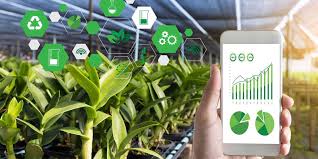Contact us:
T : 0333 241 2526
E : salessupport@utopiatechnology.co.uk
T : 0333 241 2526
E : salessupport@utopiatechnology.co.uk
Contact us:
T : 0333 241 2526
E : salessupport@utopiatechnology.co.uk
T : 0333 241 2526
E : salessupport@utopiatechnology.co.uk

Together with Huawei, Utopia Technology are in discussion with agricultural organisations to investigate the many benefits of Narrow Band IoT to the farming industry.
The adoption of smart agriculture practices is enabling a fundamental transformation from ‘living at the mercy of the elements’ to ‘living with an understanding of the environment.’
In the modern world of advanced information technologies, it is essential that our agricultural production practices be guided by the powers of data collection and scientific analysis.
Agricultural production contains a variety of meteorological, environmental, soil moisture and fertility, water quality, animal and plant ontology, parcel, circulation, and pricing data. The collection and analysis of this data will greatly improve the quality of agricultural and pastoral products, reduce production costs, minimise pollution, and increase benefits.
Agricultural digitisation offers great potential for farming applications. It is NB-IoT that will enable this digitisation
A single farm requires the collection of many types of data, but agricultural data is scattered, just as farms are scattered throughout suburban and remote areas.
Huawei NB-IoT has several advantages in terms of data transmission.
During normal operation, power consumption is extremely low, so batteries will last for several years.
Both the module and operational costs are significantly lower than those of the cellular network. Moreover, a battery power supply is adopted, which greatly reduces deployment and hardware costs.
With wide coverage and a large number of connections, the Huawei NB-IoT solution can resolve issues related to scattered agricultural data collection.
Chris Sulej, commercial director of Utopia Technology, said, “Huawei NB-IoT technology facilitates production and circulation data collection at reasonable cost. And, comprehensive and large-scale data collection lays a solid foundation for agricultural digitisation.
Through the use of low-cost, dynamic, real-time data collection with timely adjustments, crops can thrive in suitable soil to ensure high yield and quality, factoring in data on essential subjects such as soil temperature, humidity, and Potential of Hydrogen (PH) values, which all affect crop nutrient absorption, growth, and photosynthesis.”